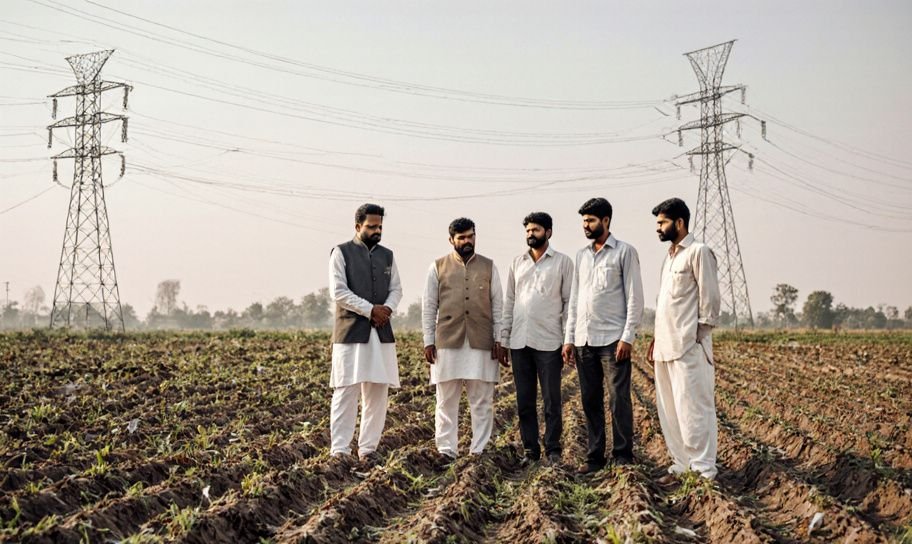
Summary: Four farmers took their claims for payment against Power Grid Corporation of India to court. Their appeals were turned down because the law says the District Judge's decision is the last word.
Four farmers, Chandrakant Pandharinath Solunke, Bappasaheb Pandurang Salunke, Vishnu Tukaram Salunke, and Bebibai Vishnu Salunke, filed appeals against Power Grid Corporation of India Ltd. They asked for money to make up for damage to their farmland caused by the company's actions under the Indian Telegraph Act, 1885.
Each farmer said that the Power Grid's work harmed their land and crops. At first, the District Judge in Aurangabad agreed with them, ordering the Power Grid to pay money with interest. The amounts were small, ranging from Rs. 2,232 to Rs. 7,900, with 6% interest per year.
The farmers, represented by Mr. K. D. Jadhav, thought they could appeal under a section of the Civil Procedure Code. They argued that their cases, called "Civil Suits," should allow for an appeal. However, the Power Grid's lawyer, Mr. Girish Rane, argued that the Indian Telegraph Act says the District Judge's decision is the last word.
Judge Ajit B. Kadethankar looked at the case and decided that the appeals could not go forward. The law clearly states that decisions under a certain section of the Indian Telegraph Act are final, meaning no more appeals can be made.
The court decided to return the appeals to the farmers, allowing them to try other legal options. They could possibly seek help under certain parts of the Constitution, which offer limited review by the court.
The court's decision shows the importance of knowing the specific laws that control payment claims and the limits of appealing decisions.